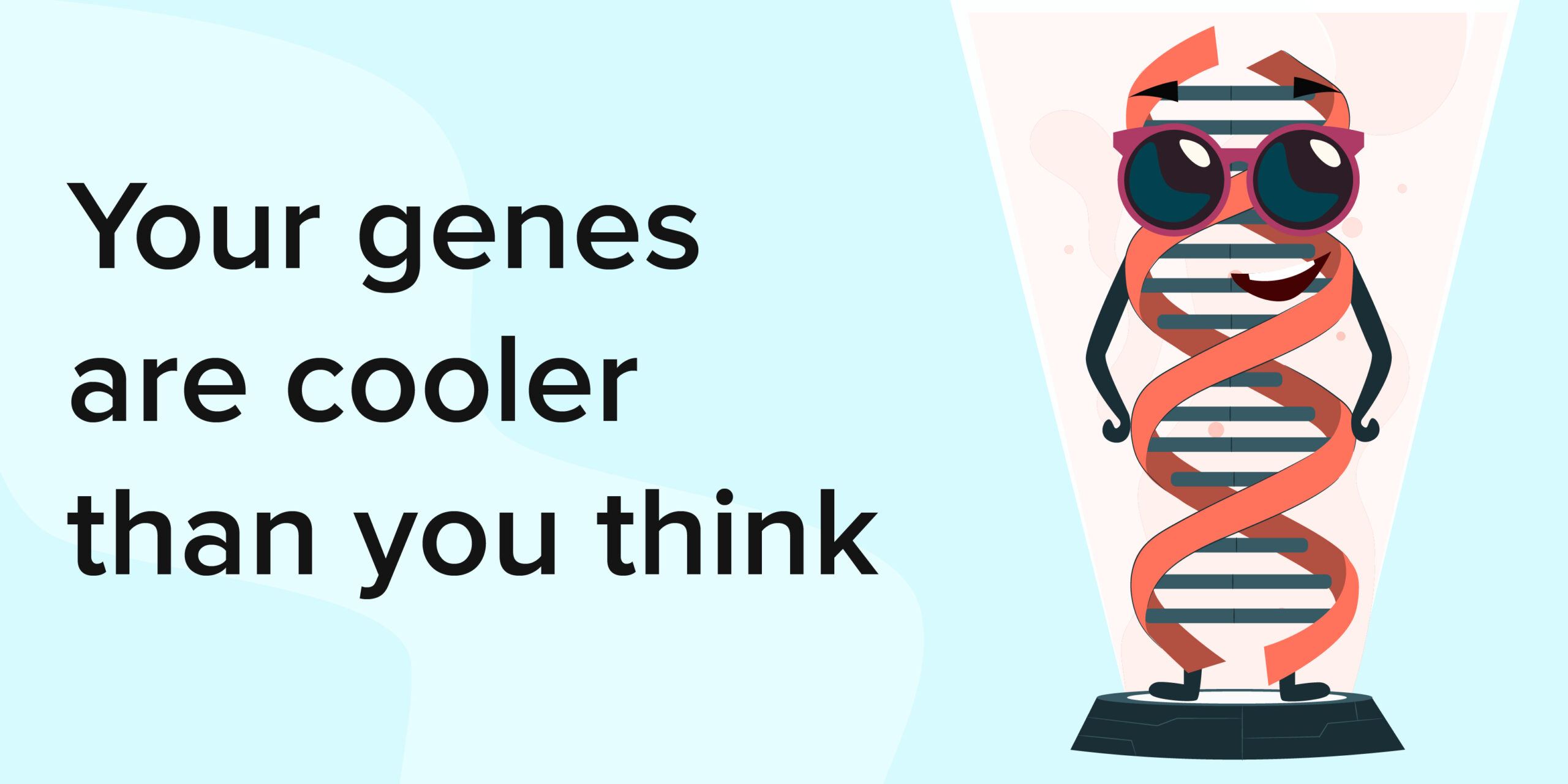
“You’ll grow taller, don’t worry. It’s in your genes.”
We’ve all heard this, or a version of this, at least once in our lives, right? Do you also remember wondering what exactly ‘genes’ are and why they would make your body have certain characteristics?
Genes are sections of DNA that are part of every cell in our bodies. Different DNA combinations create different codes for each gene that act as instructions on what to do and how to behave for the gene. So each code will tell a gene if they should produce certain proteins, which in turn result in us having different body sizes and shapes, different hair colours and eye colours. Every person has anywhere between 20,000 to 25,000 genes in their body.
While genetics, which is the study of genes, is a complicated world, it does tell us many interesting things about how our bodies work. For example, did you know that scientists recently theorised that there may be people in the world who are genetically immune to COVID-19? This theory is based on how our genetic material reacts to the virus and the fact that genes can play an important role in whether you can get a disease or not.
Wondering what else our genes are capable of? Let’s find out:
- We have a lot more in common with bananas and apes than you think. We share about 60% DNA with bananas, fruit flies, and chickens, and about 96% with chimpanzees.
- While we have about 25,000 genes in our body, only 3% of them make up our DNA. Scientists still aren’t sure what the rest of the 97% do.
- Octopuses can edit their own genes and evolve according to their surroundings. While humans can’t (unfortunately) do that, we do have a mechanism that helps doctors correct any faulty DNA in a baby that is still in the womb. This helps correct any genetic defects that may lead to serious conditions or diseases.
- Our genome, or our gene set, is not 100% human. Anywhere between 5% to 8% of our genes is viral DNA – or DNA from ancient viruses.
- About half the genetic matter found in our digestive tract is made up of ‘biological dark matter’ or matter that can’t be classified into a category. It’s not a plant, animal, fungus, virus or bacteria.
- There is a time capsule with human DNA on the International Space Station. Called ‘The Immortality Drive’, the memory device contains the full digitised genetic codes of a few noteworthy people including physicist Stephen Hawking, authors Tracy and Laura Hickman, and former athlete Lance Armstrong.
- Cheetahs are genetic clones of each other. This is because their ancestors almost went extinct during the last ice age. The remaining small group of wild cats interbred, and hence, we now have genetically identical cheetahs.
- 99.9% of the genetic makeup of all humans is the same. Yes, that means you have a lot more in common with your neighbour than you thought. But it’s that last 0.1% that makes all the difference – in how we look, think and behave.
- It is possible to have two sets of genetic codes or two sets of DNA. These kinds of organisms are called Chimera. A person can develop this in case they have a bone marrow transplant, and the marrow continues to make red blood cells containing the original DNA. They can also have two DNA sets in case of pregnancy, where the mother retains some of the baby’s DNA.
- If you unravelled all your DNA into a string, it would stretch out for six billion miles, or 9.6 billion kilometres – roughly 600 trips from the Earth to the Sun!
What else do you wish our genes could do? Tell us in the comments below.
Read more about the amazing human body on Science Feed:
Can You Heat a Building With Your Body Heat?
Warriors of the human body- The Immune System
8 Eye-Opening Facts About Human Eyes You Must Know!
